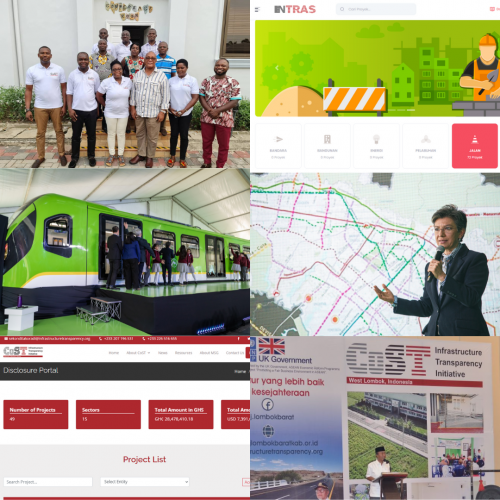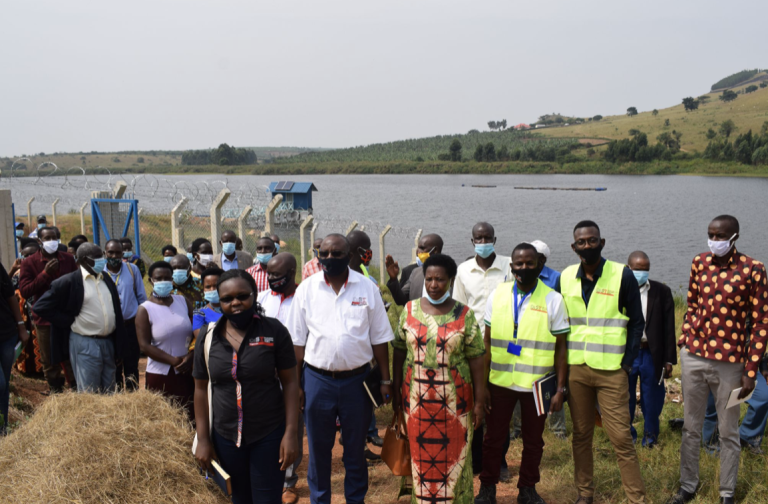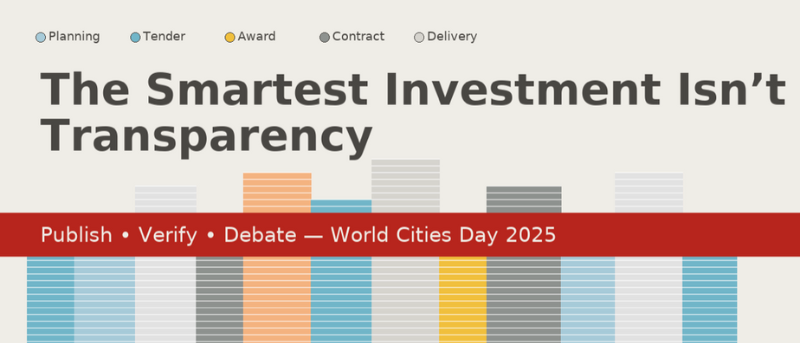By Michael Cengkuru
For World Cities Day 2025, our Open Data Specialist argues that while the use of AI and technology is an important development, these advancements must be intertwined with using evidence-backed tools and standards.
Cities worldwide spend over $124 billion annually on AI dashboards and sensor infrastructure. But a 2024 UN-Habitat assessment found only 17% of surveyed cities have integrated their systems and established robust data-sharing standards, while over 50% express serious doubts about the reliability and usefulness of their data. The problem isn’t technology. It’s spending billions without measuring actual outcomes. As the saying goes, “anything that cannot be measured cannot be improved.”
World Cities Day enters its 11th celebration in 2025. The day aims to raise international awareness of urbanization, sustainable urban development, and create better living environments and quality of life. This year’s theme is people-centered smart cities, focused on how technology and AI can improve urban life.
 1) From the Black Box to the Glass Box with Open Data
1) From the Black Box to the Glass Box with Open Data
Most smart systems do indeed generate data but, as documented by recent UN and World Bank reports, they typically fail to publish outcomes or measure impact due to fragmented, incompatible, or opaque platforms.
Rigorous data transparency standards, like CoST’s Open Contracting for Infrastructure Data Standard (OC4IDS), force the opposite: publishing each stage of the infrastructure cycle in a structured, machine-readable format. Additionally our expanded data standards, focus on economic, environmental, institutional and social sustainability helps to further ease connecting what was promised is what is delivered.
The evidence: CoST’s work with the private sector highlights that transparent procurement correlates with more competition and fewer kickbacks. When you can map money to results, waste gets harder to hide. CoST members, Thailand and Uganda, have saved millions of dollars through this approach, while sub-national members, West Lombok and Nusa Tenggara Barat, have used it to secure legal reforms. Bogota also used data publication to inform decisions around the city’s first metro line, valued at $5.2bn USD. The impact of open data is also documented by our partners, Open Government Partnership, who recently recognised the achievements of Bogota.
2) Independent Insights with Review Teams
Presentations and documents from a procuring entity can’t be solely relied on for a gold standard of truth. A core feature of CoST’s work is having an independent review team to validate published data against reality, clarifying gaps, checking delivery milestones, and translating technical detail into plain-language findings that residents can act on.
The evidence: Independent review reduces risks public capital by converting claims (“30% less congestion”) into verifiable outcomes. CoST sub-national members, West Lombok and Sekondi-Takarodi Metropolitan Assembly (STMA), have used independent reviews and Infrastructure Transparency Indexes to evaluate critical infrastructure issues and implement recommendations.
3) Publicizing data for the public domain
Social accountability focuses on working closely with stakeholders from civil society, academia, media, and everyday citizens to raise public awareness and hold decision-makers to account. Data publication and review aid in this process, so that this information can be shared in the news, community events, and civil society reports.
The evidence: At a national level, members such as Guatemala, Panama and Ecuador have used this to drive technical support, incorporate disability-friendly recommendations and improve the quality of transport and WASH outputs. At a local and regional level, Kaduna and CoST STMA has used social accountability to build the capacity of stakeholders and tangibly improve disability access, fire safety and education.
4) Use the Data to Fix Problems
Data changes nothing if it sits unused. CoST’s Multi-Stakeholder Groups bring government, private sector, including infrastructure representatives, and civil society together to interrogate published data and independent review findings. This creates a feedback loop that fixes problems before they explode into scandals. The OECD confirms: transparency and strong infrastructure governance are preconditions for value for money.
The evidence: CoST sub-national members, Cali City and Kaduna State, have worked hard to embed multi-stakeholder working. Cali joined CoST this year, with plans to form an MSG being one of their essential reasons for joining. Kaduna has trained over 100 people from across private sector, media, civil society and public officials, which has supported their data publication and creation of their  data portal. Our partners at Open Contracting Partnership have also highlighted the benefits of sustained open contracting reforms link directly to documented improvements in competition, cost savings, service delivery, and public trust (the outcomes people actually notice).
data portal. Our partners at Open Contracting Partnership have also highlighted the benefits of sustained open contracting reforms link directly to documented improvements in competition, cost savings, service delivery, and public trust (the outcomes people actually notice).
Conclusion
Across CoST’s membership, using technological developments combined with our four-pronged approach has saved millions of dollars, improved relationships between different stakeholders and resulted in people’s lives being directly improved through better infrastructure.
Technology can make cities more efficient. Transparency makes them trustworthy. If leaders want people-centered smart cities, they must publish the data, verify the claims, and create space for informing the public and debating about what the numbers show. Installing more sensors without that foundation just creates more expensive black boxes.
More examples, and details, of our work in cities and regions can be found in our impact story and through our individual member pages.
 Cengkuru Michael
Cengkuru Michael
Cengkuru Michael is a passionate IT and data specialist who, through his work with CoST, the Infrastructure Transparency Initiative, significantly promotes transparency and accountability in public infrastructure worldwide. As a key member of the CoST International Secretariat based in Kampala, Uganda, Michael leverages his data analysis, IT, and communication expertise to advance CoST’s mission across its network.
